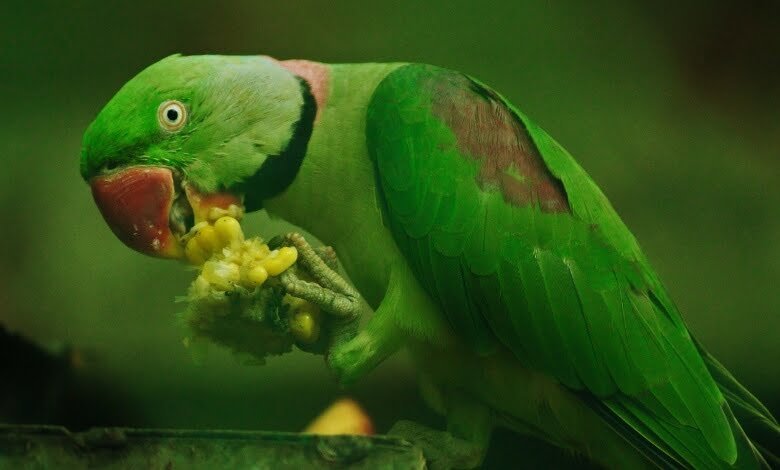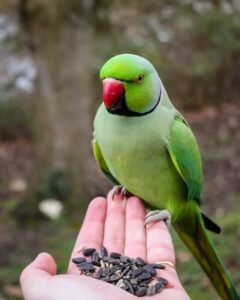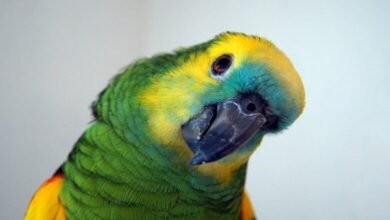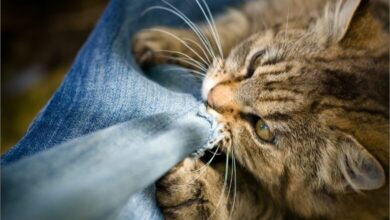
Parrots are colorful and intelligent birds that require a diverse and balanced diet to thrive. In the wild, parrots have access to a wide range of foods, including seeds, fruits, nuts, and vegetation. To ensure the well-being of your pet parrot, it’s crucial to understand their nutritional needs and provide a diet that mimics their natural feeding habits.
1. Introduction
Parrots are known for their ability to mimic human speech and their vibrant plumage, but their dietary preferences are equally fascinating. Proper nutrition plays a vital role in maintaining a parrot’s overall health, longevity, and mental well-being. Let’s delve into the essential components of a parrot’s diet.
2. Importance of a Balanced Diet for Parrots
A balanced diet is crucial for the overall well-being of parrots. It provides the necessary nutrients, vitamins, and minerals needed for optimal growth, vibrant feathers, and a strong immune system. A well-rounded diet helps prevent health issues and promotes longevity in these remarkable birds.
3. Seeds: A Staple in a Parrot’s Diet

Seeds are a staple food for parrots and serve as a primary source of energy. However, it’s important to note that a diet consisting solely of seeds can lead to nutritional deficiencies. Therefore, it’s best to offer a variety of seeds, such as sunflower, safflower, and hemp, as part of a broader diet.
4. Fruits and Vegetables: Essential for Nutrition
Fruits and vegetables provide essential vitamins, minerals, and fiber to a parrot’s diet. Incorporating a colorful array of produce, such as apples, grapes, carrots, and leafy greens, ensures a well-rounded nutritional intake. However, it’s important to research which fruits and vegetables are safe for your specific parrot species, as some may be toxic.
5. Nuts and Legumes: Healthy Fats and Protein
Nuts and legumes are excellent sources of healthy fats and protein for parrots. Almonds, walnuts, and pecans are nutritious choices that provide essential fatty acids. Legumes like lentils and chickpeas offer plant-based protein and a variety of beneficial nutrients. Remember to offer nuts and legumes in moderation due to their high-fat content.
6. Pellets and Commercial Diets: Supplementing Nutrition
Pellets and commercial diets are formulated to provide a balanced combination of nutrients necessary for a parrot’s health. These commercially available options are convenient and ensure that your parrot receives essential vitamins, minerals, and proteins. However, they should not replace the variety of fresh foods in a parrot’s diet.
7. Water: Vital for Hydration
Proper hydration is essential for a parrot’s well-being. Ensure a fresh supply of clean water is available at all times. Parrots may also enjoy bathing, so offering a shallow dish of water for them to splash around can be beneficial to their physical and mental health.
8. Treats: Moderation is Key
Treats can be a delightful addition to a parrot’s diet, but they should be given sparingly. Avoid sugary, salty, or fatty treats that can lead to obesity or other health issues. Instead, opt for healthy alternatives like small pieces of fresh fruit or nuts as occasional rewards.
9. Safe Foods for Parrots
Certain foods are safe and nutritious for parrots. These include but are not limited to bananas, blueberries, oranges, sweet potatoes, broccoli, and kale. It’s important to research the specific dietary requirements of your parrot’s species to ensure their well-being.
10. Foods to Avoid
While many foods are safe for humans, some can be harmful or even toxic to parrots. Avoid feeding avocados, chocolate, caffeine, alcohol, onions, and garlic, as they can have detrimental effects on a parrot’s health. It’s essential to educate yourself about potential hazards to keep your feathered friend safe.
11. Feeding Techniques and Frequency
Understanding how to feed your parrot is as important as knowing what to feed them. Provide fresh food in clean dishes, and remove any uneaten portions to prevent spoilage and bacterial growth. Depending on your parrot’s size and dietary needs, feeding once or twice a day with appropriate portion sizes is generally recommended.
12. Feeding Parrots with Special Dietary Needs
Some parrots have specific dietary requirements due to health conditions or age-related factors. For instance, certain species may need a higher calcium intake or a softer diet. Consult with an avian veterinarian to determine the best diet plan for your parrot if they have special needs.
13. Understanding Parrot’s Eating Behavior
Observing your parrot’s eating behavior can provide valuable insights into their overall health. Changes in appetite, weight, or digestion may indicate underlying health issues. Regularly monitor their eating habits and consult a veterinarian if you notice any abnormalities.
14. Nutritional Deficiencies and Health Issues
A poor diet can lead to nutritional deficiencies and various health issues in parrots. Common problems include vitamin deficiencies, feather plucking, obesity, and digestive disorders. Providing a well-balanced diet and seeking veterinary advice can help prevent and address these concerns.
15. Conclusion
In conclusion, a diverse and balanced diet is crucial for the well-being of parrots. By offering a variety of seeds, fruits, vegetables, nuts, legumes, and other recommended foods, you can ensure that your feathered companion receives the necessary nutrition for a healthy and fulfilling life. Remember to pay attention to their specific dietary needs, monitor their eating behavior, and seek professional advice when needed.
(FAQs)
Q1: Can parrots eat meat or fish?
A1: Parrots are primarily herbivores and generally do not require meat or fish in their diet. However, some parrot species may occasionally consume insects or small amounts of animal protein in the wild.
Q2: How often should I change my parrot’s diet?
A2: While some variety is beneficial, sudden changes in a parrot’s diet can cause digestive upset. Gradually introduce new foods and make adjustments over time, consulting with a veterinarian if needed.
Q3: Can I feed my parrot cooked food from my own meals?
A3: Parrots can enjoy certain cooked foods in moderation, such as cooked grains or vegetables. However, it’s important to avoid seasoning, spices, and harmful ingredients like onions or garlic.
Q4: How do I know if my parrot is overweight?
A4: An overweight parrot may have difficulty flying, exhibit labored breathing, or have excessive fat deposits around the chest and abdomen. Consult with a veterinarian to assess your parrot’s weight and discuss appropriate dietary adjustments.
Q5: Should I offer supplements to my parrot’s diet?
A5: In most cases, a well-balanced diet should provide all the necessary nutrients for a parrot. However, it’s recommended to consult with an avian veterinarian to determine if any specific supplements are needed for your parrot’s health.





